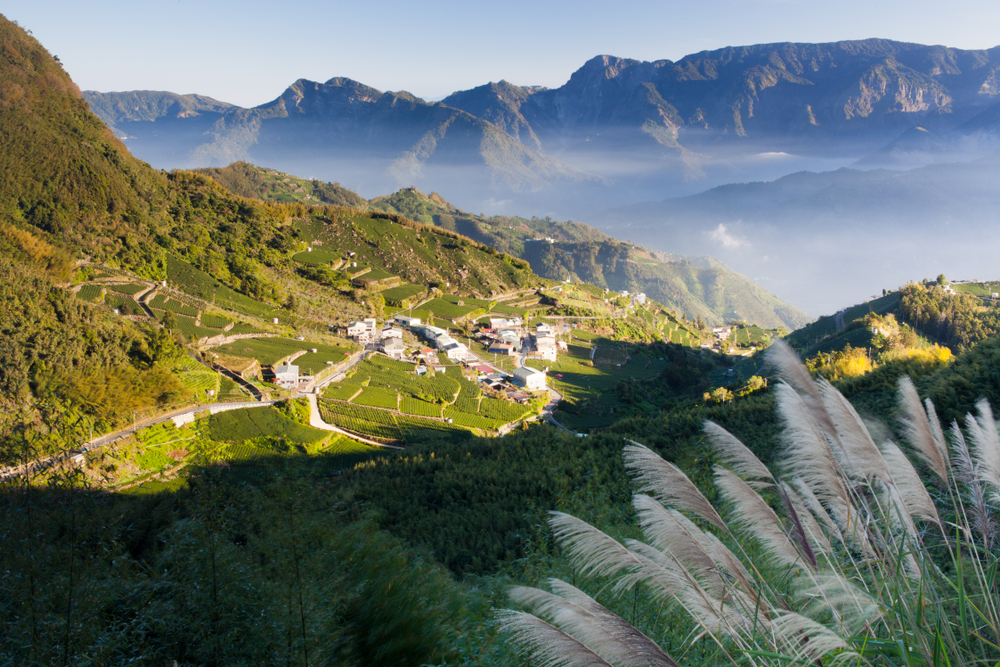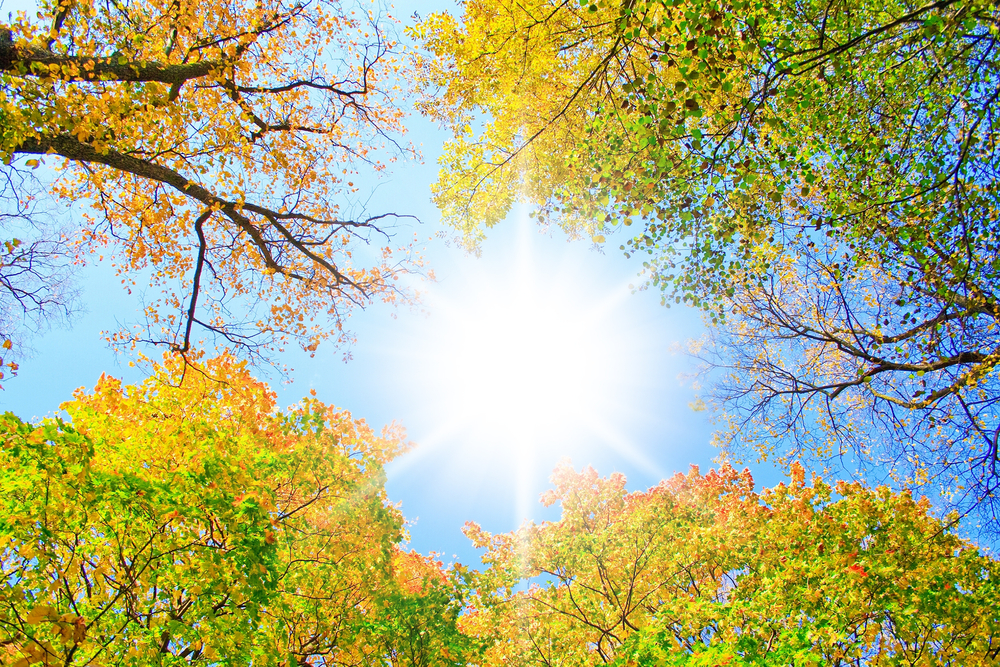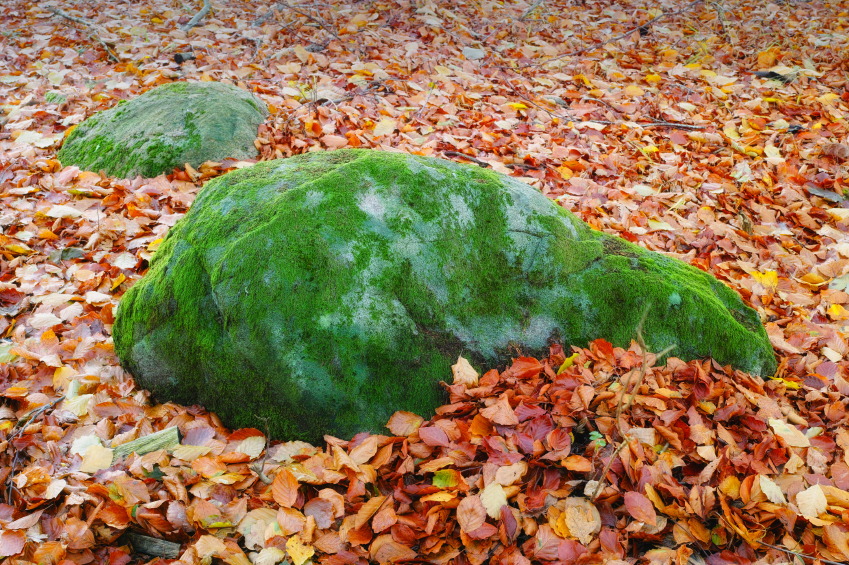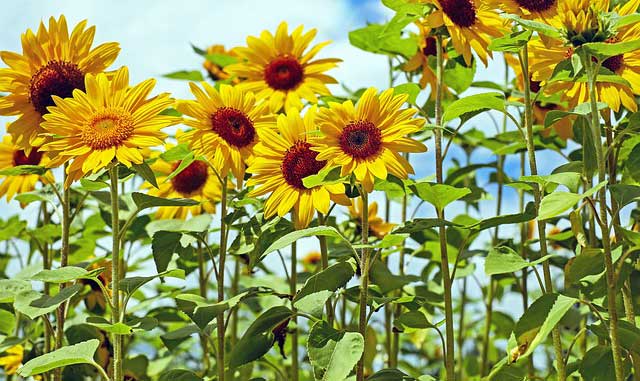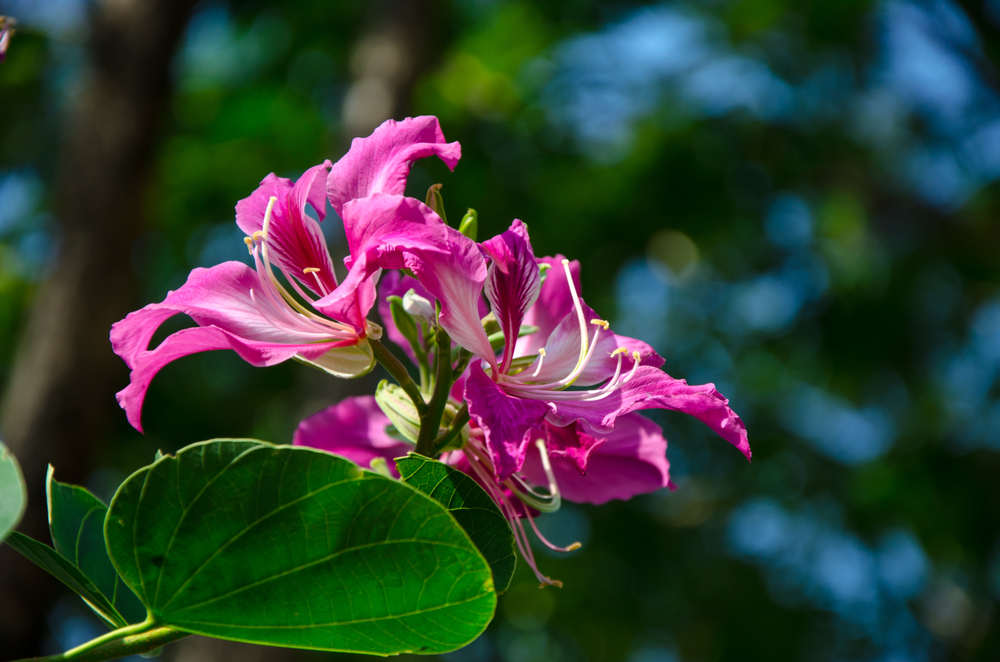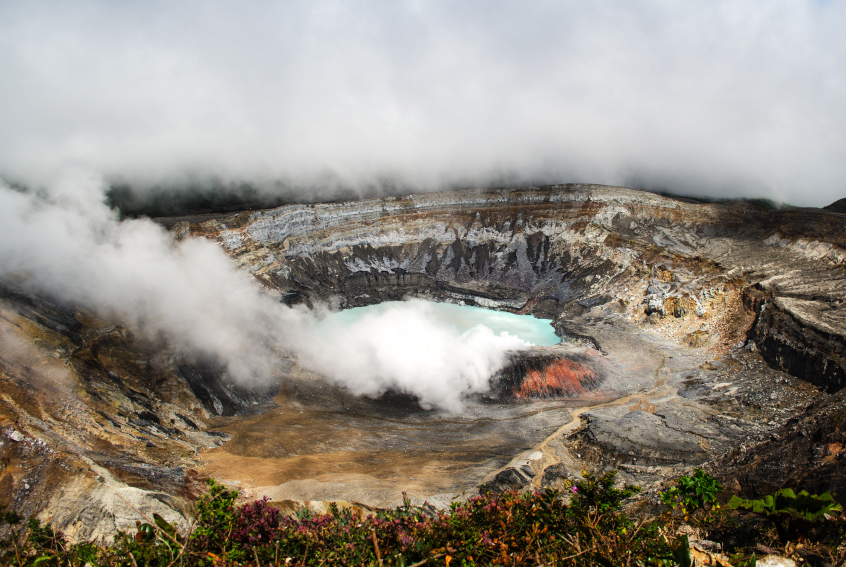I’ve been trying to find one single word that covers knowledge concerning both the properties and cultivation of plants, but have come short with some words.
Here are some of the words I thought of, but eventually found lacking:
Botany: I feel this implies purely scientific research on plants, ignoring the cultivation of plants and things like crop rotations and irrigation techniques.
Agriculture: I think this word only covers food crops and plants commonly grown for decoration. I feel it misses out on the more thorough knowledge of all (not just commonly cultivated) plants, including currently unknown ones.
Ultimately, I’m looking for a word that encompasses the subjects of both Botany and Agriculture, but have come short for now.
asked Mar 18, 2015 at 20:09
2
Looking into this, I just learned a new word:
Agronomy
Agronomy is the science and technology of producing and using plants for food, fuel, fibre, and land reclamation. Agronomy
encompasses work in the areas of plant genetics, plant physiology,
meteorology, and soil science. Agronomy is the application of a
combination of sciences like biology, chemistry, economics, ecology,
earth science, and genetics. Agronomists today are involved with many
issues including producing food, creating healthier food, managing
environmental impact of agriculture, and extracting energy from
plants. Agronomists often specialize in areas such as crop
rotation, irrigation and drainage, plant breeding, plant
physiology, soil classification, soil fertility, weed control, and
insect and pest control.
(Emphasis mine)
answered Mar 18, 2015 at 22:08
Zimul8rZimul8r
3341 silver badge3 bronze badges
Horticulture
Horticulture is the branch of agriculture that deals with the art, science, technology, and business of plant cultivation. It includes the cultivation of fruits, vegetables, nuts, seeds, herbs, sprouts, mushrooms, algae, flowers, seaweeds and non-food crops such as grass and ornamental trees and plants. It also includes plant conservation, landscape restoration, landscape and garden design, construction, and maintenance, and arboriculture.
Horticulturists apply their knowledge, skills, and technologies used to grow intensively produced plants for human food and non-food uses and for personal or social needs. Their work involves plant propagation and cultivation with the aim of improving plant growth, yields, quality, nutritional value, and resistance to insects, diseases, and environmental stresses. They work as gardeners, growers, therapists, designers, and technical advisors in the food and non-food sectors of horticulture.
answered Mar 18, 2015 at 20:18
SUM GUYSUM GUY
4191 gold badge3 silver badges9 bronze badges
3
Granted, it’s not a single word, but plant sciences would seem to encompass both areas. That’s a department name in US universities, for example.
answered Mar 18, 2015 at 21:46
JeffSaholJeffSahol
18.6k2 gold badges37 silver badges78 bronze badges
1
The term that you are looking for is agricultural botany. It is the discipline that combines botany and agriculture. It is not a single word but it is sometimes shortened as agri-botany.
The final «new» branch of Botany is which we must briefly mention, at least so that its historical links can be seen, is agricultural botany. Here, after nearly 200 years, we find the University accepting and catering for a scientific approach to crop cultivation for which the first professor of Botany, Richard Bradley, had hoped in vain.
The Shaping of Cambridge Botany By Stuart Max Walters, John Stevens Henslow
There is even a National Institute of Agricultural Botany in Cambridge, UK. There is also an agricultural botany department in several universities including University of Reading, University of Zagreb and Czech University of Life Sciences.
Horticulture covers some scientific approaches to plant cultivation but it doesn’t cover all the scientific studies of botany. In other words, it doesn’t cover botany; hence there is a field called horticultural botany. It is defined in Wikipedia as the study of the botany of current and potential cultivated plants, with emphasis on the ornamental plants of horticulture, by a horticultural botanist or plantsman—plantsperson.
answered Mar 20, 2015 at 2:07
ermanenermanen
59k34 gold badges159 silver badges291 bronze badges
5471 results for ‘plants’
Plants
Quiz
Y2
Biology
Plants the Natural World
NATIVE plants
Group sort
PEOPLE
PRIMARY
KS1
KS2
Y1
Y2
Y3
Y4
Y5
Y6
Biology
plants
plants
Plants
Labelled diagram
Kindergarten
N.Windsor
Science
OECS Standards Science
Plants
Matching pairs
International class
Y1
English
Science
1C
cambridge
english learning
international class
spelling
Plants
Crossword
KS2
Y3
Science
Living things
Plants
Anagram
International class
Y1
Science
1C
cambridge
english learning
international class
spelling
A plant is a living organism with a stem, roots, and leaves. Most plants grow in the ground absorbing water with their roots. Plants need sunlight and they make their own food. There are many kinds of plants on earth such as flowers, trees, grasses, and herbs.
Table of Contents
- ⬤ Pictures of plants vocabulary with pronunciations
- ⬤ Word list of plants vocabulary in English
- ⬤ Flashcards exercise about plants vocabulary
- ⬤ Flip the card game about plants
- ⬤ Images of plants vocabulary to download and share
- ⬤ Picture quiz about plants vocabulary
- ⬤ Listening test about plants vocabulary
- ⬤ Writing test about plants vocabulary with pictures
- ⬤ Spelling test about plants vocabulary
- ⬤ Worksheets for plants vocabulary to download
⬤ Pictures of plants vocabulary with pronunciations
The following is the plants vocabulary with pictures and pronunciations. To learn how to say plants in English click on any image.
The browser you are using does not support HTML5 audio playback. Sorry.
⬤ Word list of plants vocabulary in English
- plant
- flower
- fruit
- garden
- grain
- grass
- herb
- forest
- jungle
- rain forest
- stem
- thorn
- tree
- trunk
- vegetable
- wood
- rose
- vine
- reeds
- bean
- berry
- bush
- cactus
- corn
- mushroom
- evergreen
- botany
- leaf
- agriculture
- blossom
- clover
- root
- seed
- stalk
- sprout
- nut
- palm
- ivy
- lily
- moss
- nectar
- branch
- fern
- flora
- petal
- pollen
- water lily
- pine tree
SIMILAR PAGES:
❯❯ Fruits vocabulary
❯❯ Vegetables vocabulary
❯❯ Herbs and spices vocabulary
❯❯ Nature vocabulary
❯❯ Farm life vocabulary
⬤ Flashcards exercise about plants vocabulary
You can learn plants vocabulary with flashcards exercise below. First guess the name of a picture and then click on the card to see the answer.
⬤ Flip the card game about plants
Click on a card to flip it. After that you will see a random word about plants. Try to guess the meaning of it in your native language.
⬤ Picture quiz about plants vocabulary
The following is a picture quiz about plants. Select the name of the picture from the list. For every right answer you get 10 points.
⬤ Listening test about plants vocabulary
Here is a listening test practice about plants. Listen to the audio about plants. Then select the corresponding option from the list of images. For each right answer you get 10 points.
⬤ Writing test about plants vocabulary with pictures
Below is a writing test about plants. Firstly, look at the image and after that type the name of the image into the text box.
⬤ Spelling test about plants vocabulary
This is a listening and spelling test about plants. Listen to the audio and then type what you hear into the text box correctly.
⬤ Worksheets for plants vocabulary to download
Перевод по словам
— knowledge [noun]
noun: знания, знание, познания, осведомленность, знакомство, эрудиция, наука, известие
- storehouse of knowledge — хранилище знаний
- providing them with knowledge — предоставляя им знания
- global access to knowledge? — глобальный доступ к знаниям?
- practical application of acquired knowledge — практическое применение полученных знаний
- strengthening of knowledge — укрепление знаний
- tech knowledge — тек знаний
- essential knowledge regarding — необходимые знания о
- knowledge gaps — пробелы в знаниях
- music knowledge — музыка знания
- family knowledge — семья знания
— of [preposition]
preposition: из, о, от, об, для
- edge of a mountain — гребень горы
- word (of honor) — слово (чести)
- coefficient of efficiency — коэффициент эффективности
- command of — командование
- out of measure — вне мерцания
- order of business — порядок ведения бизнеса
- strength of will — сила воли
- freak (of nature) — ошибка природы)
- parody of — пародия на
- soldier of the Navy — воин флота
— plants [noun]
noun: завод, растение, установка, фабрика, оборудование, агрегат, саженец, урожай, поза, сыщик
verb: сажать, насаждать, садить, засаживать, внедрять, подбрасывать, внушать, наносить, подсадить, вкапывать
- a plants of — а растения
- fibrous parts of plants — волокнистые части растений
- operates plants — управляет заводами
- capabilities of the plants — Возможности растений
- manufacturer of plants — Производитель растений
- plants from all over the world — растения со всего мира
- offshore plants — морские растения
- in power plants — на электростанциях
- for watering plants — для полива растений
- tidal power plants — приливные электростанции
Предложения с «knowledge of plants»
|
Knowledge of plants and animals was broadly the province of physicians. |
Познания о растениях и животных были широко распространены среди врачей. |
|
From the number of his published works, it is evident he had a very wide knowledge of plants and plant literature. |
Из числа его опубликованных работ видно, что он обладал очень широкими познаниями в области растений и растительной литературы. |
|
Born2cylce claims to now have enough knowledge of plants to judge that past community consensus. |
Born2cylce утверждает, что теперь у него достаточно знаний о растениях , чтобы судить об этом прошлом консенсусе сообщества. |
|
Women, owing to their societal role, often have knowledge of traditional plants and medicines that can be beneficial in fighting diseases. |
В силу своих социальных функций женщины, как правило, обладают знаниями о лечебных свойствах традиционных лекарственных растений и препаратов, которые могут быть полезны в борьбе с болезнями. |
|
The case study shows the importance of women farmer’s knowledge related to the conservation and use of plant genetic resources, especially potatoes. |
В этом исследовании подчеркивается важность опыта и знаний женщин — фермеров по вопросам сохранения и использования генетических ресурсов растений , особенно картофеля. |
|
Research on gender-based differences in farmers’ knowledge and management of animal and plant genetic resources for farming. |
проведение исследований по обусловленным гендерными факторами различиям в знаниях фермеров и освоение животных и растительных генетических ресурсов в целях сельского хозяйства;. |
|
Ensure farmers’ rights and protect traditional knowledge for the conservation and sustainable use of plant genetic resources. |
обеспечение прав фермеров и охрану традиционных знаний для сохранения и устойчивого использования растительных генетических ресурсов;. |
|
It is also rich in traditional knowledge , especially knowledge associated with indigenous and medicinal plants. |
Кроме того, он богат знаниями, передаваемыми из поколения в поколение, особенно в том, что касается местных лекарственных растений . |
|
Did you never ask yourself what kind of a God plants a tree bearing the fruit of true knowledge , only to forbid his creation to partake? |
Ты не задавалась вопросом, какой Бог вырастет дерево с плодами познаний истины, чтобы лишь запретить причаститься к ним? |
|
Rub up your knowledge of rare plants in the Balkans. |
Вспомни все, что ты знаешь о редких цветах Балкан. |
|
I have extensive knowledge of the chemical properties of various… medicinal plants that grow in this forest. |
У меня обширные знания в области химических свойств различных лекарственных растений , которые растут в этом лесу. |
|
I used my knowledge of chemistry to start a chemical fertilizer plant. |
Опираясь на свои познания в химии, я открыл завод по производству удобрений. |
|
I had a fairish knowledge of the plants and their good uses. |
У меня были неплохие знания о растениях и их использовании. |
|
These were put together at the Pontiac plant in Michigan over Christmas 1962 with the knowledge of an impending General Motors ban on factory racing. |
Они были собраны на заводе Pontiac в Мичигане на Рождество 1962 года с учетом надвигающегося запрета General Motors на заводские гонки. |
|
Despite this, Plantinga does accept that some philosophers before Gettier have advanced a JTB account of knowledge , specifically C. I. Lewis and A. J. Ayer. |
Несмотря на это, Плантинга признает, что некоторые философы до Геттиера выдвинули JTB — отчет о знании, в частности К. И. Льюис и А. Дж.Айер. |
|
Leading proponents of reliabilist theories of knowledge and justification have included Alvin Goldman, Marshall Swain, Kent Bach and more recently, Alvin Plantinga. |
Ведущими сторонниками теории достоверности знания и обоснования были Элвин Голдман, Маршалл Суэйн, Кент Бах и совсем недавно Элвин Плантинга. |
|
Many shamans have expert knowledge of medicinal plants native to their area, and an herbal treatment is often prescribed. |
Многие шаманы обладают экспертными знаниями о лекарственных растениях , произрастающих в их местности, и часто назначают лечение травами. |
|
His knowledge , reputation, and international contacts allowed him to set up a very extensive plant collection. |
Его знания, репутация и международные связи позволили ему создать очень обширную коллекцию растений . |
|
Knowledge of gibberellins spread around the world as the potential for its use on various commercially important plants became more obvious. |
Знания о гиббереллинах распространились по всему миру, поскольку потенциал их использования на различных коммерчески важных растениях стал более очевидным. |
|
Agriculture emerged slowly, stemming from knowledge of the annual cycles of nature and the progressive domestication of familiar plants. |
Сельское хозяйство возникло медленно, проистекая из знания ежегодных циклов природы и постепенного одомашнивания знакомых растений . |
|
The use of A. thaliana has led to many breakthroughs in the advancement of knowledge of how plants manifest plant disease resistance. |
Использование A. thaliana привело ко многим прорывам в развитии знаний о том, как растения проявляют устойчивость к болезням растений . |
|
Samael plants the Tree of knowledge , thereupon he is banished and cursed by God. |
Самаэль сажает Древо познания, после чего он изгнан и проклят Богом. |

By
Last updated:
February 2, 2023
Are you a nature lover?
If you are, being able to talk about nature in English would certainly be beneficial.
Since there are over 160 nature words on this list, regardless of your language level, you’ll definitely pick up some beautiful nature vocabulary!
You’ll learn how to describe landscapes, weather conditions, various types of plants, geological features and climate change patterns.
Let’s get started!
Contents
- Describing Landscapes and Geological Features
- Describing Weather Conditions
- Describing Plants, Flowers and Trees
- Gardening Tools Used to Take Care of Plants
- Beautiful Landscapes in Nature
- Ancient Geological Features in Nature
- Climate Change Vocabulary
- The Best Way to Practice Nature Words in English
Download:
This blog post is available as a convenient and portable PDF that you
can take anywhere.
Click here to get a copy. (Download)
Describing Landscapes and Geological Features
Geological features are landscape characteristics found in nature that are not plants or animals.
- Lush — used to describe plants and flowers that are healthy and growing well
- Grassy — used to describe meadows and fields that have a lot of grass or green plants
- Floral — used to describe gardens or landscapes that have a lot of flowers
- Vivid — something that’s bright or colorful
- Abloom — used to describe flowers or groups of flowers that are blooming
- Vibrant — something that’s bright and eye-catching
- Dense — used to describe plants that are growing close together and are hard to see through because they’re so thick
- Earthy — something that contains or looks like soil or dirt
- Diversified — used to describe a garden or landscape that has a lot of different plants
- Dry — without water
- Bare — without plants
- Dead — used to describe plants that are no longer living
- Oversaturated — used to describe plants that have had too much water or rain
- Flooded — used to describe landscapes that are covered in water due to overflowing rivers or lakes
- Flowering — used to describe when flowers first start appearing on plants
- Budding — used to describe the first stage of flowering
- Hilly — a landscape containing a lot of hills
- Mountainous— a landscape containing lots of mountains
- Wavy — used to describe water with rough waters
- Rolling — used to describe a landscape with a lot of hills that resembles (looks like) ocean waves
- Stormy — used to describe a lot of rain, lightning, thunder and wind
- Misty — a landscape that has a light haze of rain in the air; oceans and waterfalls often produce mist
- Frigid — extremely cold
- Desolate — a bare landscape where few plants are growing
- Untouched — a landscape that has not been changed by human beings
- Pristine — a lush landscape that appears untouched or “picture-perfect”
- Tropical — a landscape that’s warm with jungle plants and palm trees; common on islands near the equator
- Arid — a dry landscape that receives very little rain
Describing Weather Conditions
- Sunny — a lot of sunshine
- Humid — a lot of moisture in the air
- Stifling — so hot that one is uncomfortable
- Gloomy — cloudy and gray weather
- Rainy — a lot of continuous (ongoing) rain
- Dry — little to no rain
- Cloudy — a sky mostly covered in clouds
- Foggy — used to describe a landscape with a lot of fog (a light cloud at the ground level)
- Clear — no clouds or rain
- Crisp — describing a cool temperature
- Cool — slightly cold or chilly
- Windy — a lot of wind
- Breezy — a similar meaning to windy, but a breeze is less strong than wind
- Wet — the landscape after a lot of rain
- Fair — weather that’s clear and warm
- Mild — pleasant or not too warm
- Still — no wind
- Overcast — a lot of clouds in the sky, but little to no rain
Describing Plants, Flowers and Trees
Small and Skinny Plants
- Bush — a plant that grows close to the ground; it expands widely and has leaves
- Shrub — another word for bush
- Hedge — similar to bush but often trimmed to be rectangle-like; these often surround houses or are used to create a boundary or fence
- Grass — a plant that grows widely in fields and meadows; it’s also common on household lawns
- Moss — a soft plant that grows on rocks and trees; it looks like a green carpet
- Mushroom — a fungus that grows in dark places; some can be eaten and others are poisonous
- Herb — a variety of plant that’s used for flavoring food (basil, cilantro, mint, etc.) or as medicine or tea
- Fern — an ancient (very old) plant whose leaves look like feathers
- Reed — a plant that looks like tall grass and grows in wetlands and swamps
- Bamboo — a plant that looks like long stalks of wood and grows in tropical places
- Ivy — a plant with five-pointed leaves that grows close to the ground and climbs trees and buildings
- Poison Ivy — a type of ivy that causes extreme itching and a rash, if touched
Main Parts of Plants
- Seed — what plants grow out from
- Root — the part of the plant that remains underground and absorbs water
- Stem — the part of the plant that grows upward and holds the flower up
- Stalk — another word for a stem
- Leaf — the green part of the plant that absorbs sunlight
- Petal — the colorful parts of the flower
- Bud — the first stage of plant growth that’ll flower and bloom
- Thorn — a part on the stem of a flower or plant that’s prickly and sharp
- Branch — the part of the tree that grows out from the trunk
- Twig — a small branch
- Bark — the outer skin of a tree
Pretty and Common Flowers
- Daffodil — a flower with small yellow petals
- Rose — flowers with thorns and bright red petals
- Dandelion — a weed that has yellow flowers
- Daisy — a flower that has white petals around a yellow top
- Lily — a medium-sized flower whose petals can be all different colors
- Tulip — common in many gardens, and famous in Holland; they can be multiple colors and are associated with Easter
- Sunflower — a big flower with bright yellow petals and a brown center
Now that you know all the basics, try practicing your plant vocabulary!
Typical Tall Trees
Two common types of trees are deciduous and evergreen.
Deciduous trees shed (get rid of) their leaves during a specific part of the year, typically autumn or fall, and evergreen trees keep their leaves all year.
Not all trees fall into these two categories though, as you’ll see in this shortlist.
- Palm tree — (neither deciduous or evergreen) a tropical tree with large, featherlike leaves and sometimes coconuts
- Cactus — (neither deciduous or evergreen) a plant that grows in the desert with thorns or thistles (pointy, sharp spines)
- Maple — a deciduous tree with three-pointed leaves
- Oak — a deciduous tree with acorns
- Birch — a deciduous tree with thin, white bark
- Willow — a large deciduous tree with thin leaves and curtain-like branches
- Poplar — a medium-sized deciduous tree with teardrop-shaped leaves
- Pine — an evergreen tree with needle-like leaves and pinecones
Gardening Tools Used to Take Care of Plants
- Gardener — someone who maintains a garden
- Flower pot — a container where one or more flowers grow
- Vegetable garden — a garden that specifically grows vegetables
- Weed — a plant in a garden that’s not desired
- To weed — (action verb) to pick and remove the weeds from the garden
- Shovel — a tool used to dig in the ground
- Pail — a cylindrical (circular) container for carrying water
- Watering can — a container specifically used to water plants
- Shears — a tool used to cut through or trim plants
- Rake — a tool used to gather trimmed plants or fallen leaves from the ground
- Hoe — a single-bladed tool used to dig out weeds
- To sow — (action verb) to plant seeds
- To mow — (action verb) to trim the grass, often with a lawnmower
- Lawnmower — the machine used to mow the lawn; it can be gas-powered or hand-pushed
- Wheelbarrow — a single-wheeled cart for carrying gardening materials
- Shed — a small shelter in a yard that stores gardening materials or other outdoor objects and tools
Beautiful Landscapes in Nature
- Bay — where the sea curves inward to create a body of water with the coast on three sides
- Lake — a small body of water inland; lakes are often freshwater
- Sea — a large body of saltwater
- Ocean — a larger body of salt water; there are five oceans: Atlantic, Pacific, Indian, Arctic and Southern
- River — a flowing stream of water
- Creek — a thin river
- Waterfall — when water falls from a higher point like a cliff to a lower point
- Canyon — an arid and rocky valley surrounded by cliffs
- Glacier — a large expanse (area) of ice around the polar regions of the Earth
- Meadow — a large field with grasses and flowers
- Forest — a landscape with dense plants and trees
- Mountain — a big elevation in the Earth; mountains are often rocky, snow-covered or volcanic
- Hill — a small elevation in the Earth
- Plain — a flat expanse of land; plains are often grassy
- Marsh — an expanse of land that regularly floods and remains saturated
- Island — an expanse of land surrounded by water on all sides
- Peninsula — an expanse of land surrounded by water on three sides
- Savanna — an arid field in a tropical region; there are a lot in Africa
- Valley — an expanse of land between mountains or hills
- Desert — a dry landscape often covered in sand or rocks; not many plants grow here
- Tundra — a dry landscape in cold climates
- Cliff — a steep mountain-like formation; these are common along coasts
- Cave — a tunnel or chamber underground
- Beach — a sandy expanse of land near bodies of water
- Field — an expanse of land where grasses and other plants are common
Don’t forget to practice your landscape vocabulary!
Ancient Geological Features in Nature
The word geology is a noun that means the study of the Earth and its physical processes.
This list of vocabulary also has words that describe significant events that impact human activity and are caused by the Earth.
- Bedrock — large expanses of flat rocks
- Sedimentary rock — rock that’s moved by water or wind
- Igneous rock — rock that’s made directly from lava or magma
- Metamorphic rock — sedimentary or igneous rocks changed by extreme heat
- Crater — a large, circular hole or indentation in the Earth; usually formed by a volcano
- Erosion — when water or air breaks away at rocks
- Fossil — old remains from a plant or animal that died a long time ago
- Gem — a precious stone often used for jewelry
- Geyser — when hot water sprays up from under the Earth
- Hot spring — a pool where water is warmed by underground Earth processes
- Mineral — a solid material made by the Earth
- Seismic activity — the movement of the Earth’s plates created by natural processes
- Earthquake — when seismic plates shift, causing the Earth to shake and split
- Volcano — a mountain formed by eruptions and lava
- Magma — hot fluid under the Earth
- Lava — when magma surfaces from underground
- Eruption — when lava or magma spews from the Earth at the top of a volcano
- Tsunami — a giant wave often caused by an underwater earthquake
- Fossil fuel — a natural fuel burned by humans to run things like cars, airplanes and electricity
Climate Change Vocabulary
Climate change is a noun that describes global weather patterns and temperatures that have changed due to the impact of human activity.
- Atmosphere — layers of gases in the sky that encase the Earth
- Ozone — a layer of oxygen above the Earth that protects us from the sun
- Carbon dioxide —what we exhale when we breathe; we also create this by burning fossil fuels
- Emissions — these are produced when we burn fossil fuels; they commonly come out of cars, power plants and factories
- Ecosystems — a community of plants and animals that depend on each other for survival
- Habitat — a place where an animal lives
- Extinction — when all members of an animal species die
- The Greenhouse Effect —when emissions get stuck under the Earth’s atmosphere and warm the planet
- Pollutant —something that pollutes or damages the Earth
- Non-renewable resource — a resource that can only be used once; an example would be natural gas
- Renewable resource — a resource that can be used over and over again; an example would be wind
- Coal — ancient plant matter now in rock form that can be burned for fuel
- Oil — a liquid found in the Earth that can be burned for fuel
- Solar energy — a form of energy that uses the sun’s rays
- Wind energy — a form of energy that uses wind
- Drought —when a landscape is dry for an extended period of time
- Ice caps — another word for glaciers in the polar regions of the Earth
While some of these words are pretty complicated, practicing climate change vocabulary is important if you want to take about current events that involve the environment.
And if you’re up for a challenge, try practicing all of the nature words together!
The Best Way to Practice Nature Words in English
Long-term memory is where knowledge and vocabulary words stay for long periods.
That means that once a word is in your long-term memory, you should be able to use that word a week from now, a month from now or even a year from now.
To move words from your short-term memory to your long-term memory, you should make words meaningful for you.
- When learning a new word, try using it in a full sentence and write that sentence down in a notebook. In many cases, you can use several words that are related to each other to help you remember their meaning.
- To take your practice a step further, try going for a walk in nature. As you’re walking, create sentences and descriptions of what you’re seeing.
- Better yet, write these sentences down or bring a voice recorder with you! This is a great way to use nature words and record the descriptions you’re creating to review again later.
Your English nature word vocabulary is growing into quite a beautiful garden!
Take care of the seeds you just planted, and watch your nature vocabulary flourish!
Download:
This blog post is available as a convenient and portable PDF that you
can take anywhere.
Click here to get a copy. (Download)

